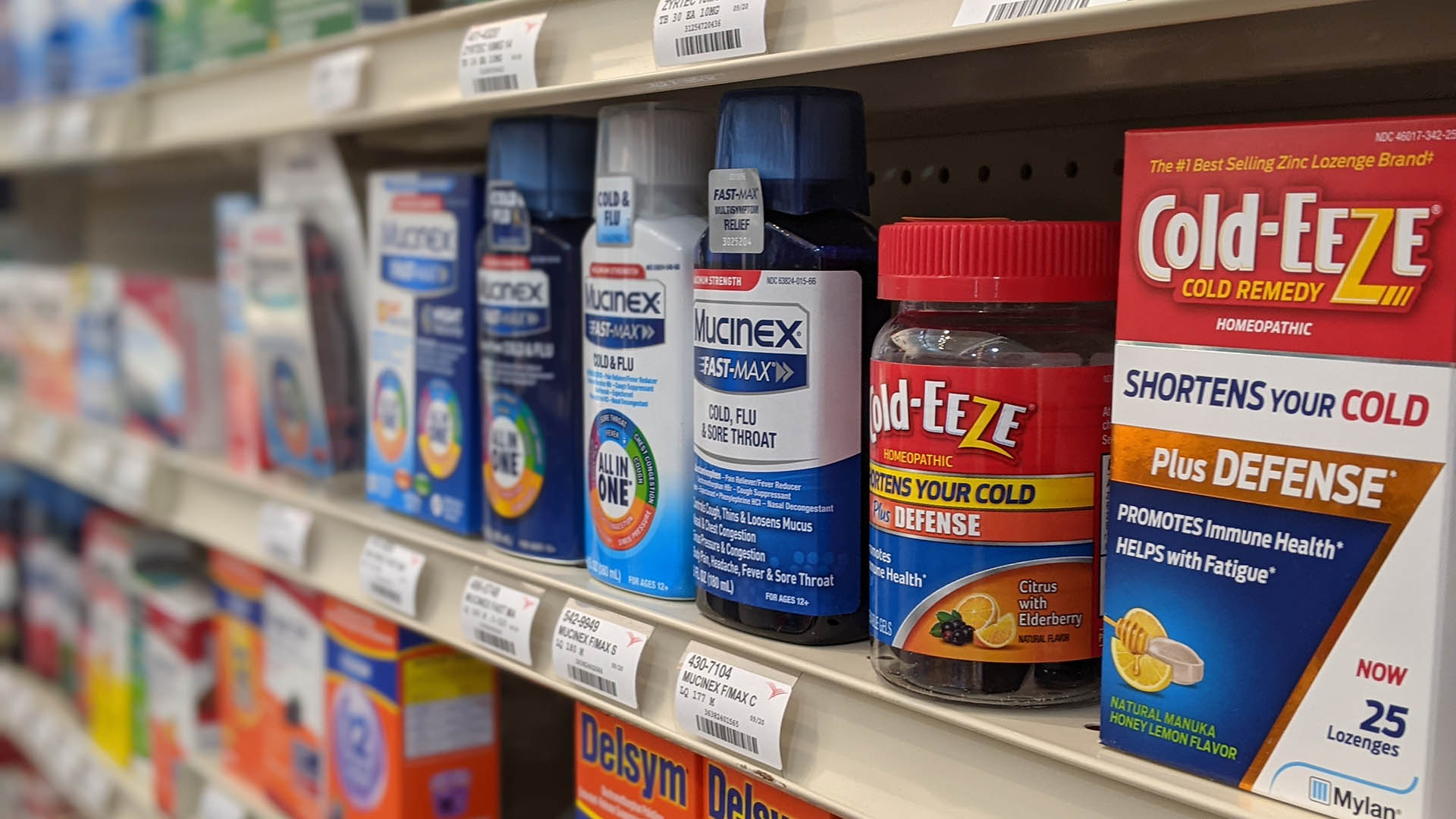With all the craziness this year we are not only treating patients symptomatic with the flu but also with COVID 19 which has many of the same symptoms as the flu. Of course, COVID can hit you 10 times harder than the regular flu so recommendations here are for the folks who are treating their symptoms at home and not requiring more extensive therapy in a hospital setting.
Here are some of the most commonly used medications to help you through your symptoms:
- Mucolytics
- Examples: Mucinex, Robutissin
- Mucolytics work to thin secretions in the upper and lower respiratory tract. They are extremely safe and work best if you are drinking plenty of water while using them (6-8 glasses of water per day)
- Decongestants
- Examples: Sudafed, Mucinex D, Bronchaid, many others
- These medications work to open upper airways by causing constriction of small blood vessels. Unfortunately, these medicines not only constrict small blood vessels but can also act on larger blood vessels in the body so it is important that people with high blood pressure DO NOT use decongestants without first checking with their medical provider or pharmacist. There also other conditions in which decongestants are not recommended. Check with your provider or pharmacist.
- Anti-histamines
- Examples: Zytrec, Claritin, Benadryl, Allegra, many others
- These medications antagonize histamine H1 receptors and in doing so reduce the secretions which occur with colds, flu, allergies. Some of the older antihistamines cause a significant amount of sedation as a primary side effect. The newer antihistamines are less likely to cause sedation. There are medical conditions where antihistamines are not indicated so consult your provider or pharmacist.
- Acetaminophen
- Example: Tylenol
- Acetaminophen is an excellent treatment for aches, pains and fever associated with cold and flu. Important not to take more than recommended on the package labeling.
- Ibuprofen/NSAIDS
- Ibuprofen and other drugs like it (NSAIDS) are excellent for treating aches, pains and fever associated with cold and flu. Ibuprofen and other NSAIDS are safe when used as directed. There is a possibility of gastric irritation with this class of medication. It is important to take only the dose that is recommended.
- Cough Suppressants
- Examples: Mucinex DM, Robitussin DM, many other brands
- The only over-the-counter cough suppressant medication is Dextromethorphan. Believe it or not, dextromethorphan is closely related to morphine. The big difference is that in normal doses dextromethorphan does not cross the blood-brain-barrier (enter the CNS system). In normal doses it is a safe and effective cough suppressant but in HIGH doses it can behave very much like Morphine. It is very important this medication is taken only as directed on the package labeling. In addition to dextromethorphan some practitioners recommend honey to help with the relief of cough. Studies have shown some efficacy, but it is important not to use honey in infants less than 1 year old to avoid the risk of botulism exposure and toxicity.
- Immune Boosters
- There are several natural “immune boosters” out there and we’ve covered those in a separate post, read it here.


